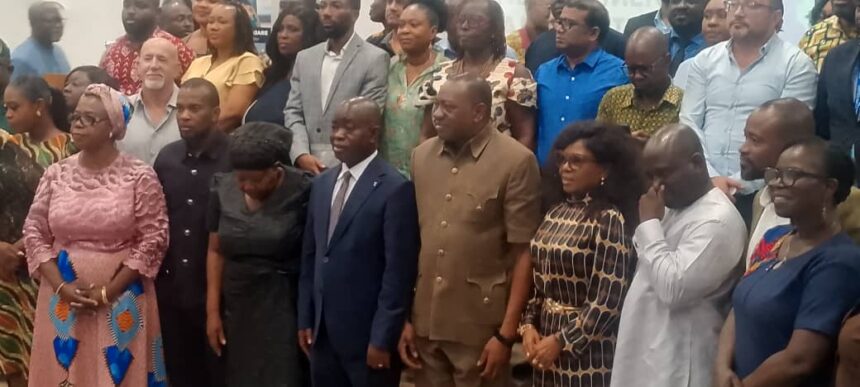The Ministry of Trade, Agribusiness and Industry has organized a stakeholder validation workshop on the draft textiles and garments manufacturing policy to solicit inputs from the industry players.
The validation workshop creates one platform for the players in the industry to highlight Ghana’s strategic efforts to revitalize its textiles and garments industry through the proposed Draft Textiles and Garments Manufacturing Policy.
This draft Policy proposes bold interventions ranging from the establishment of five world-class industrial parks to the creation of dedicated funds for cotton development and textile upgradation, to the provision of fiscal incentives and concessional tariffs for manufacturers.
During a stakeholder validation workshop held at Ghana Exim Bank in Accra on August 6, 2025, Deputy Minister for Trade, Samson Ahi, emphasized the sector’s historical significance and its potential to boost economic growth, employment, and export diversification.
Ghana’s textile and garment industry, once thriving, has declined, with few legacy companies remaining and domestic production capacity diminishing amid rising imports.
According to him, “the new policy aims to address these challenges by attracting investment, increasing productivity, and positioning Ghana as a sourcing hub for ethical and sustainable apparel manufacturing. Key interventions include establishing industrial parks, creating funds for cotton development and textile upgrades, and offering fiscal incentives and concessional tariffs to manufacturers”.
The government has set ambitious targets for 2033, including growing the industry to over USD 2 billion in value, attracting USD 1.2 billion in new investments, creating 150,000 jobs, and reviving cotton cultivation across 50,000 hectares. The policy also emphasizes capacity building, labor relations, and environmental sustainability to ensure inclusive and responsible growth.
Stakeholder participation is vital to refining the policy, with a call for feedback from public and private sector actors, development partners, academia, and worker unions. The overarching goal is to transform Ghana into a leading manufacturing and sourcing hub in West Africa, leveraging innovation, sustainability, and inclusive development to unlock the sector’s full potential.
The Deputy Minister urged policymakers, manufacturers, development partners, academia, and representatives from worker unions and associations to share candid and constructive feedback, “Let us build an industry that not only revitalizes Ghana’s rich textile legacy but also unlocks the full potential of our garments sector. Let us refine this policy with purpose and precision to position Ghana as a leading manufacturing and sourcing hub in West Africa, driven by innovation, sustainability, and inclusive growth”.
On his part, Dr. Abdul-Rashid Hassan Pelpuo, the Minister of Labour, Jobs, and Employment, has welcomed the policy and submitted government is committed to creating sustainable jobs for all, especially you, through effective public policies.







